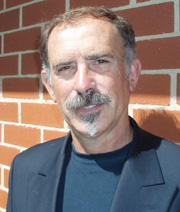 By disseminating information that is of public interest, WikiLeaks founder and editor-in-chief, Mr Julian Assange, did the right thing by informing the public of the truth, and should be thanked for it and named Australian of the Year, says a Charles Sturt University (CSU) media ethicist.
By disseminating information that is of public interest, WikiLeaks founder and editor-in-chief, Mr Julian Assange, did the right thing by informing the public of the truth, and should be thanked for it and named Australian of the Year, says a Charles Sturt University (CSU) media ethicist.Dr Edward Spence, senior research fellow and senior lecturer in media ethics at the CSU Centre for Applied Philosophy and Public Ethics and the School of Communication and Creative Industries in Bathurst says, WikiLeaks and Mr Julian Assange stand wrongly accused by an assembly of world politicians for disseminating the latest classified information to the public which they deem as doing something terribly wrong.
“Yet upon reflection and all available evidence so far, this is by no means true,” Dr Spence says. “On the contrary, in his capacity as a social journalist, Mr Assange could not have done otherwise.”
Dr Spence notes that Australia’s Media and Entertainment Arts Alliance journalist code of ethics states that ‘respect for truth and the public’s right to information are fundamental principles of journalism’. Similar principles are also enunciated by the code of ethics of the International Federation of Journalists, which declares that ‘respect for truth and for the right of the public to truth is the first duty of the journalist’.
“According to those national and international journalism codes of ethics, Mr Assange, therefore, has committed no wrong, at least no moral wrong, in disseminating the recent batch of documents concerning diplomatic classified information. His actions may have breached some as yet unidentified laws, but that is still to be established,” Dr Spence says.
“However, even if he has somehow technically breached a law concerning the dissemination of classified information, that in itself does not make his actions ethically wrong. For example, consider that, even if Jesus did break the work laws of the Jewish Sabbath, Jesus committed no moral wrong in restoring sight to the blind beggar. On the contrary, it was a wonderful and laudable act of kindness.
“Similarly, those courageous people who infringed the now discredited apartheid laws of South Africa did break the law but in doing so acted morally out of a sense of universal justice. We should not label Mr Assange a hero or a villain. He is merely doing what any honest, vigilant and good investigative journalist does, or ought to do, the world over. Unlike a lot of corporate journalists today, Mr Assange is fortunate through the wonder of the Internet to be free of any commercial or political interests that increasingly constrain and hamper independence and integrity.”
Dr Spence argues that whether or not the information being disseminated by WikiLeaks is in the public interest is a matter for the public to decide and not politicians who would rather keep the population in the dark with the misguided notion that they do so for the good of their citizens.
“Plato, the venerable Greek philosopher may have argued for the ‘noble lie’ when it serves the public interest, but there is nothing noble about lying or lying by omission in hiding politically inconvenient truths. Politicians serve the public interest, not the other way round. It is indeed this sentiment that gave rise to the perception of the media as the Fourth Estate. An independent and fearless disseminator and commentator of true information to the public so that citizens are able to make informed decisions on matters of public interest that contribute to the common good and serve democracy.
“While some in the United States have been calling for Mr Assange’s blood, others less bloodthirsty, have been calling for his arrest and indictment. This should not surprise us, as there is a famous historical precedent for this. About two and a half thousand years ago Socrates (469-399 BC), probably the best known and celebrated philosopher of all time, had to endure as much and worse when he earned the wrath of a few very well-connected and powerful Athenians in ancient Greece. He was tried and executed for ‘corrupting the youth and being irreverent to the gods’. Though not officially a journalist, he was by his own admission an annoying gadfly tirelessly exposing the ignorance and folly of powerful generals and politicians who claimed to know what in fact they lacked knowledge of. For Socrates, like any good investigative journalist today, was passionate about the truth. If he had lived today he would most probably have been an investigative journalist or a social media blogger in pursuit of the truth for the common good.
“Mr Assange, of course, is no Socrates, but if his motives for leaking information to the public are similar to those of Socrates, that is, to inform his fellow world citizens of the truth for the common good, annoying as that might be to some, he deserves our respect and thanks for that service.
“When asked at his trial what punishment did Socrates propose for his ‘crimes’ against the state, Socrates replied that for his services to the Athenian public, in his tireless efforts to educate his fellow citizens about what is true and good, he should be given a life pension equal to that given to victorious Olympian athletes. He was instead given hemlock.
“Perhaps we should be more generous and if not a pension express to Mr Assange our thanks and gratitude for his services to democracy and the right of the public to be informed. Declaring him Australian of the Year, would not, as someone has already suggested, be inappropriate.”





Social
Explore the world of social